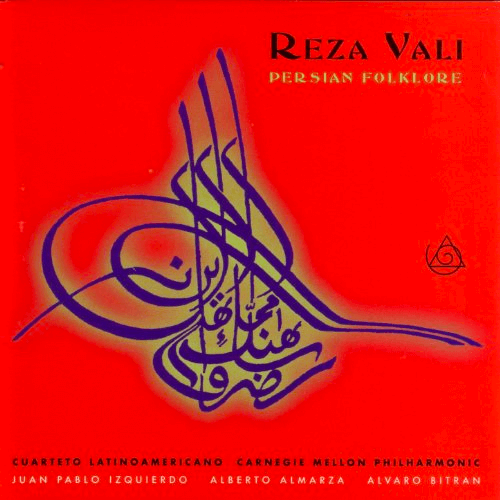
Many composers of the late nineteeth and early twentieth centuries used the folk music of their native countries as a source of inspiration for their compositions. For some composers, such as Stravinsky, this was a short-lived infatuation soon to be followed by neoclassicism, or, for others, one of several different forms of modernism. Among the major European composers, Bela Bartok, Manuel de Falla, and Zoltan Kodaly remained significantly committed to using folk music as primary sources for their works. In the present generation Reza Vali is a leading exponent of this practice and one of the few using Persian folk songs as a basis for composing Western classical music.
As a student at the Teheran conservatory, Vali began to collect Persian folk music, an activity he continues today. He soon began composing music based on the actual melodies he had collected as well as writing music in the style of these songs - 'imaginary' folk music, to borrow a phrase from Bartok. In 1978 Vali completed his first set of folk songs for voice and piano. The next three sets, composed in the early 1980s, were also written for voice and piano, but in 1984 Vali began to write folk songs for different combinations of instruments. This recording includes Set No. 9 for flute and cello, Set No. 11B for string quartet, and Four Movements for string quartet and string orchestra.
